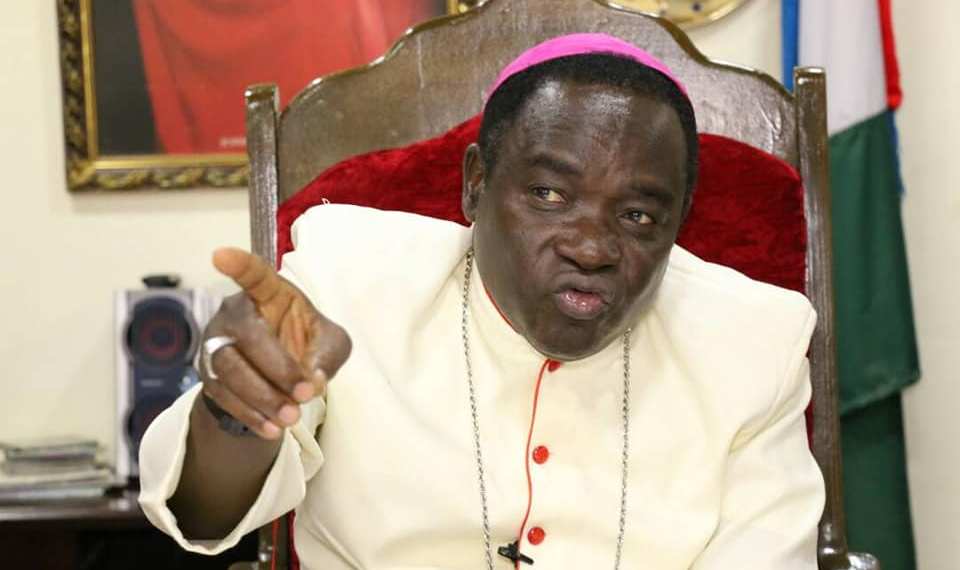Catholic Bishop of Sokoto Diocese Dr. Matthew Kukah, said has paid almost N30 million to bandits for the release of his abducted priests.
Kukah added that he was faced with a fresh challenge of paying another N30 million to secure freedom for his nephew and a driver abducted “two days ago.”
The Bishop stated this while speaking during a one-day “High-level forum on political communication and issue-based campaigns in the 2023 general elections” in Abuja.
He also said Nigerians do not need a political messiah in 2023 but “someone who understands the situation of things” in the country.
He said: “Before coming here, I was speaking with my brother, because two days ago, my nephew, his mother, and the driver were on their way to Abuja when they ran into the hands of kidnappers.
“My brother’s wife had an amputation some three months ago and they were bringing her to Abuja. So, when the kidnappers saw the stomp on her leg, they had mercy on her and let her go.
“Right now, as we speak, my nephew and the driver of the vehicle are currently in the hands of the kidnappers. How it is going to end I don’t know.
“Then they said they wanted N50million, they then said they wanted N20million. Now they are staying on N30million.
“I am the Bishop of Sokoto Diocese, I have spent about N30 million because my priests were kidnapped and I have nowhere to turn to.
“I am not ashamed to say it because these are essential realities. Anyone who wants to become president of Nigeria cannot pretend to stand before me without giving me empirical evidence from his or her record about how they intend to deal with these issues because there is a collective feeling of alienation.
“Here in Abuja, just about a month or so ago, when the threats came that the bandits will enter into Abuja, everybody went undercover.”
The cleric told the gathering that Nigerians do not need anyone who projects himself as a messiah because “we no longer need a messiah but someone who understands the situation of things.’ ,
He pointed out that many times, people say what they did not mean during campaigns.
Kukah insisted that campaigns must be identity-based and not on the things that do not matter.
His words: “When we talk about 2023 elections, we need to talk about how we will get ourselves out of all of these.
“The questions that the ordinary Nigerians are asking are legitimate and it is the responsibility of those who govern to deal frontally with the issues.
“We need to re-image and re-imagine the nation because the Nigeria that we have today is not the Nigeria that many of us can recognise..”
Kukah advised politicians to develop the skills to manage diversity in such a way that people would not feel left out.
“Because no matter what the effort that is put in place if the people do not see it, it would end as a futile effort.
“I want to commend the National Assembly for the action it has taken and the speed with which the Electoral Act was passed.
“But that’s just the beginning, but there’s a challenge to convince Nigerians that they are voting and electing and choosing their leaders. There’s a crippling fear and the people do not really believe that the laws are changing,” he said.
Kukah said he had sometimes tried to explain to people that it is different when you’re involved in the act of politicking. from when you are not
The cleric said: “The lens with which an issue is dissected by an outsider it is totally different from when one is involved in the process.
“I have always tried to explain to young people that a wedding is not a marriage; marriage starts after the wedding. What that means in essence is that a campaign is not an election and an election is not good governance.
“There is always a difference between a person who is campaigning and when they become president, governors, senators, and the rest.
“A campaigner seeks to capture the attention, so he can do everything he has to do to get your trust.
“I tell people that it’s not like politicians are bad people, as those who have won elections will tell you, what they were seeing outside is usually different from when they get in.”
